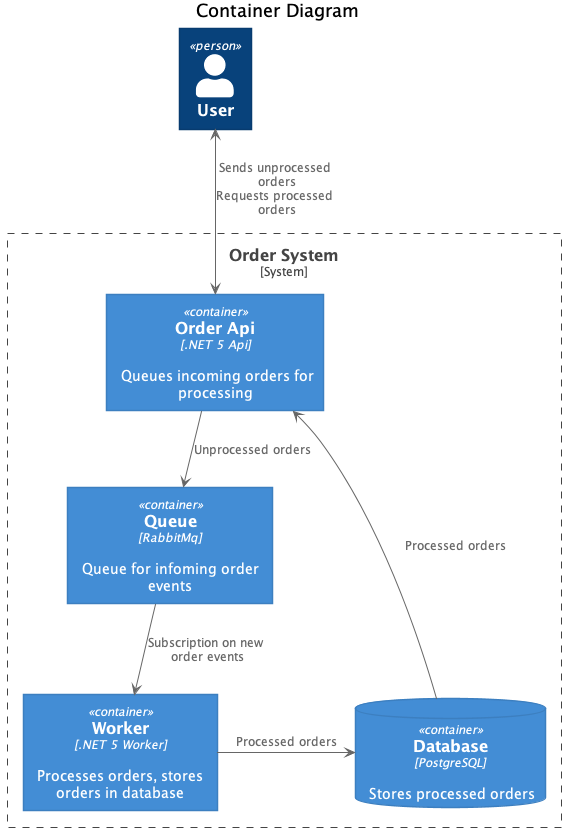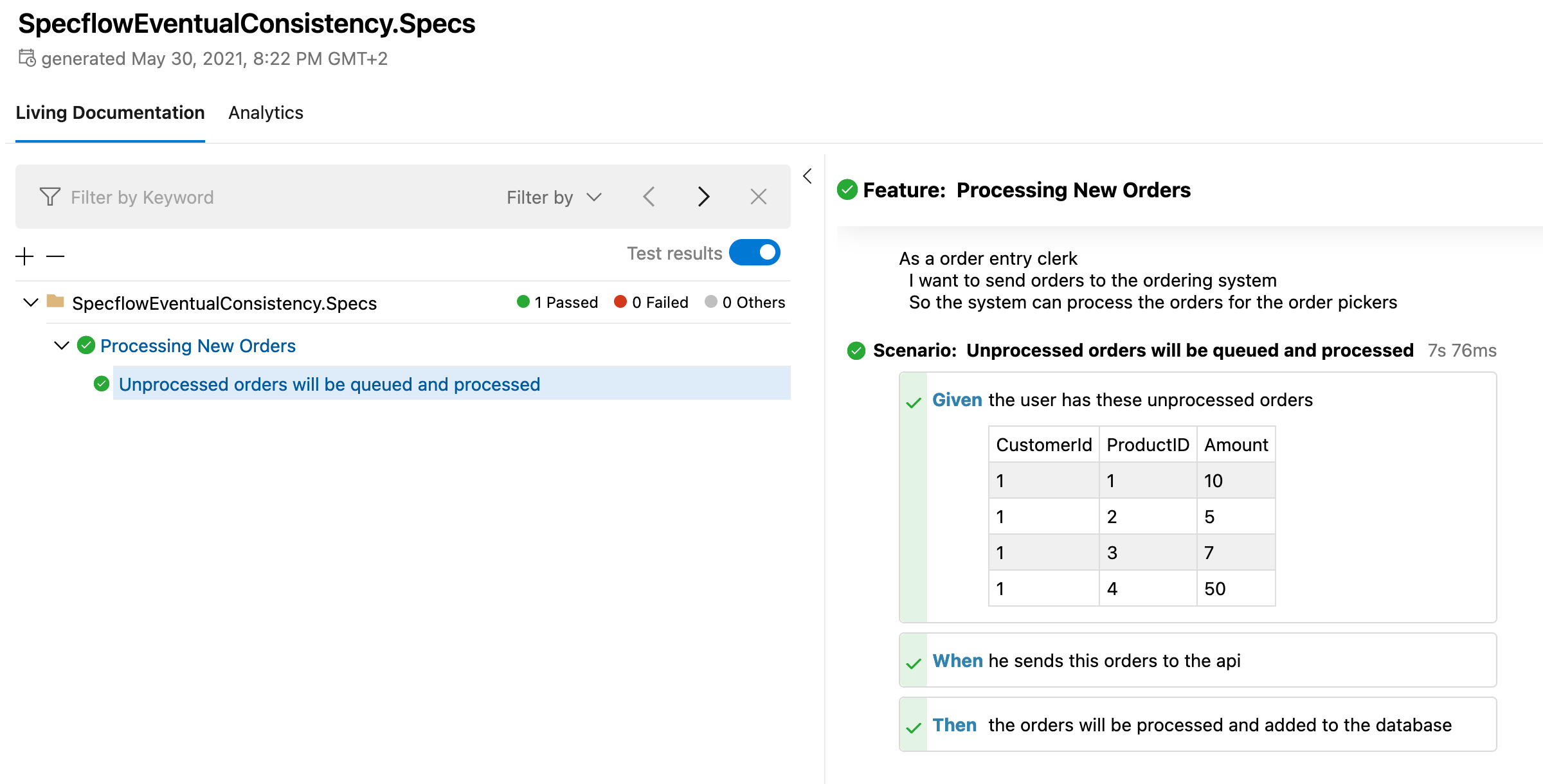Specflow and Eventual Consistency
SpecFlow is a tool which can be used to describe test scenarios and automate the tests. Although I have been using SpecFlow for a while now I never used it for advanced examples where time might be an issue. Lets show a simple example scenario first. A scenario, written in Gherkin, looks like this:
Scenario: Add simple item with due date
Given the user enters "wash my car"
And the user adds a due date of "1-1-2022"
When the user saves the item
Then the item "wash my car" is added to the list
And the due date is "1-1-2022"
This scenario is easy to implement, the item will be added and stored. That’s it. Easy to verify, no delays, straight forward. But what if you have some microservices with a queueing mechanism? A scenario where data will be queued before processing so we can’t exactly know when the data is processed?
Testing with eventual consistency
Eventual consistency is a consistency model used in distributed computing to achieve high availability that informally guarantees that, if no new updates are made to a given data item, eventually all accesses to that item will return the last updated value (Wikipedia).
So, lets create a system with some microservices. The Container Diagram looks like this:

It is a simple API with a bunch of REST endpoints so we are able to create orders and retrieve processed orders. When orders are posted, they will be queued and processed by a worker, the worker has an artificial delay of 5 seconds so it acts like a long running process. When we want to create an automated test we could write a specification like this:
Feature: Processing New Orders
As an order entry clerk
I want to send orders to the ordering system
So the system can process the orders for the order pickers
Scenario: Unprocessed orders will be queued and processed
Given the user has these unprocessed orders
| CustomerId | ProductID | Amount |
| 1 | 1 | 10 |
| 1 | 2 | 5 |
| 1 | 3 | 7 |
| 1 | 4 | 50 |
When he sends this orders to the api
Then the orders will be processed and added to the database
Implementation
Before we run the tests we want to make sure all orders for the customer are removed. Since we are testing against a testing environment this shouldn’t be a problem.
[BeforeScenario]
public async Task SetupTestUsers() =>
await _api.DeleteOrdersForCustomer(customerId: 1);
By using Polly we can catch exeptions of a specific type. In this case, we catch exceptions of the type XUnitException because this is the type that will be thrown when the assert fails. When Polly catches an exception it will retry a number of times, while it waits for some time in between te retries. This way it is possible to create a test that verifies a few times if the orders are processed without specifying an exact duration.
[Then("the orders will be processed and added to the database")]
public async Task ThenTheOrdersWillBeProcessedAndAddedToTheDatabase()
{
var newOrders = _scenarioContext.Get<IEnumerable<Order>>("ORDERS");
var retry = Policy
.Handle<XunitException>()
.WaitAndRetryAsync(3, retryAttempt => TimeSpan.FromSeconds(3), (exception, timeSpan, context) => {
_output.WriteLine($"RetryException: {exception.Message}");
});
await retry.ExecuteAsync(async () =>
{
var processedOrders = await _api.GetAllOrders();
processedOrders.Count().Should().Be(newOrders.Count());
});
}
Check the full implementation on GitHub.
Report

You can get the full project on GitHub.
